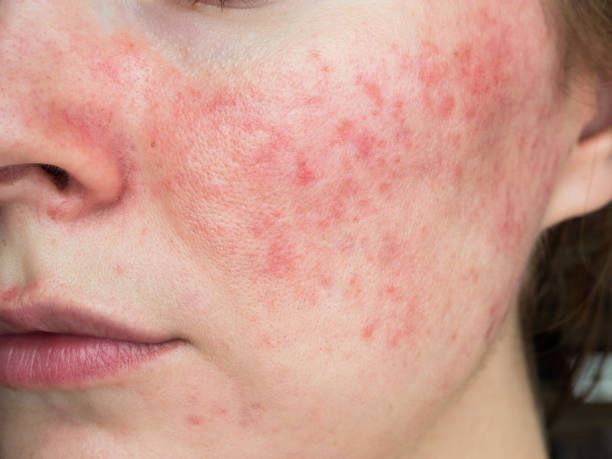Rosacea is a chronic skin condition that causes redness, visible blood vessels, and sometimes acne-like bumps on the face. While it’s not fully understood what causes rosacea, certain triggers are known to make symptoms worse.
Identifying and avoiding your personal triggers is key to managing rosacea long term — and your dermatologist can play a major role in helping you do just that.
Here’s what to avoid:
Sun exposure/Hot Weathers- Why? UV rays can inflame blood vessels and worsen facial redness.
How to avoid this? Use a broad-spectrum SPF 30+ sunscreen daily (look for mineral-based formulas with zinc oxide or titanium dioxide). Wear wide-brimmed hats and seek shade during peak sun hours (10 a.m. to 4 p.m.).
Skincare & Cosmetic Products- Harsh or fragranced products can irritate sensitive rosacea-prone skin.
Instead, Use: Gentle, fragrance-free products
Cream-based cleansers and non-comedogenic moisturizers and mineral makeup for better tolerance
At Average Dermatology, our board-certified dermatologists take a personalized approach to rosacea treatment. Here’s how we can help:
Diagnosis & Trigger Identification
We help differentiate rosacea from acne or other skin conditions. We’ll review your history and may suggest keeping a trigger journal to track patterns.
Prescription Treatments
Topical treatments: like metronidazole, azelaic acid, or ivermectin.
Oral antibiotics: such as doxycycline, for moderate to severe flares.
Customized Skincare Plans
We guide you toward gentle, rosacea-safe products and a daily routine tailored to your skin’s needs.



